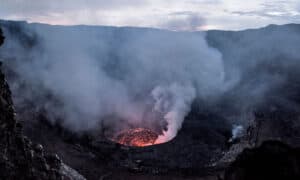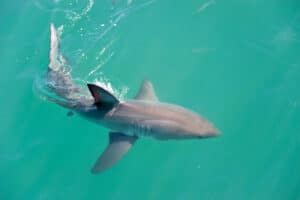You might not know it, but Georgia sharks attacked a grand total of two people in 2021. Globally, there were only 73 confirmed unprovoked cases of shark attacks in 2021, 9 of which were fatal. According to the International Shark Attack File (the only comprehensive, scientifically vetted list of shark attacks), annual shark attack fatalities are actually decreasing from year to year. But, the United States is still far in the lead for unprovoked attacks, with 47 of the 73 shark attacks happening in the United States last year.
Here, we’ll take a closer look at the Georgia shark attacks that occurred in 2021. We’ll find out exactly where these attacks took place and what your chances of being bitten by a shark in Georgia are. Then, we’ll learn a little more about sharks and what you can do to avoid a nasty encounter. Finally, we’ll find out why sharks are a vital part of the marine ecosystem and why they need our protection.
Are there Sharks at Georgia Beaches?
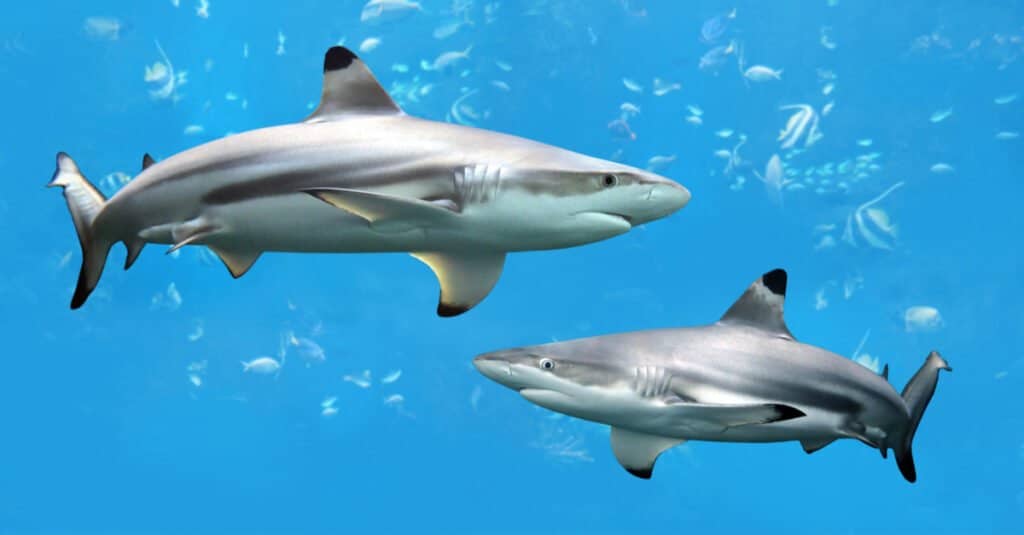
Georgia sharks don’t confine themselves to just the coast of Georgia.
©Gino Santa Maria/Shutterstock.com
Historically, Georgia sharks rarely attack, but they are present, swimming in the coastal waters of Georgia’s beaches. The east coast of the United States is home to great white sharks, tiger sharks, hammerhead sharks, bull sharks, blacktip sharks, and more. Currently, an organization called Ocearch actually tracks a number of large sharks as they swim the waters of the Atlantic Ocean. They also provide invaluable educational and conservation resources to help protect Georgia sharks.
Georgia Shark Attacks: 2021
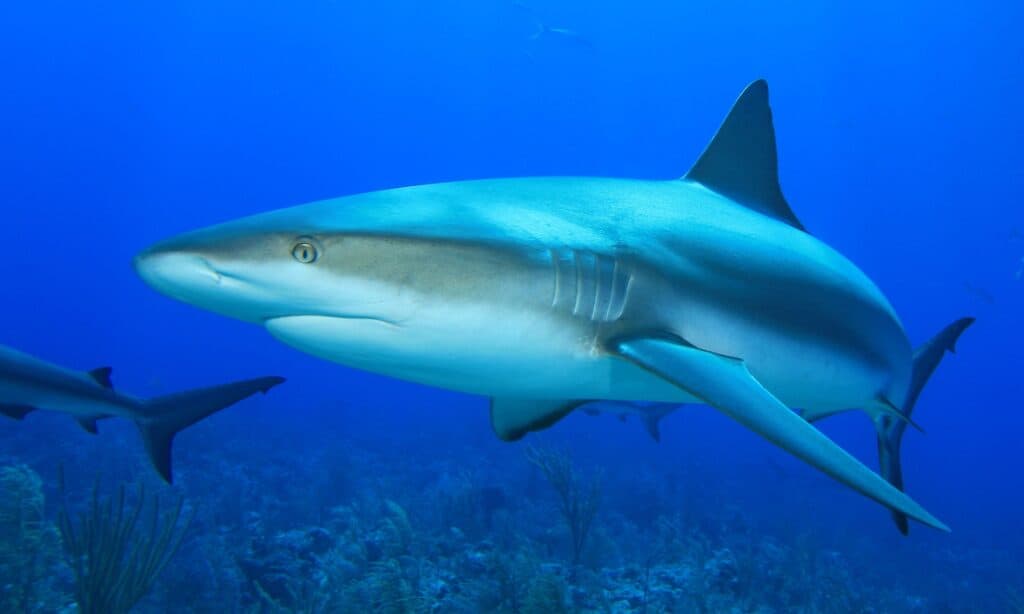
There have been fewer than 20 confirmed shark attacks in Georgia in over 100 years, with only two fatalities.
©iStock.com/richcarey
2021 was a big year, in terms of shark attacks, for Georgia. Two shark attacks took place in the span of a single week. That’s a pretty big deal, considering that less than 20 shark attacks have ever occurred off the coast of Georgia. Both attacks occurred near Savannah, Georgia, in areas that haven’t played host to shark attacks in recent memory.
The first Georgia shark attack of 2021 happened close to Savannah, near Tybee Island. The victim suffered lacerations to his leg but survived to tell the tale. Experts believe he was bitten by a black tip shark, a species common to the area. Bites off Tybee Island are extraordinarily rare, and it’s believed that this one was a case of mistaken identity.
The second Georgia shark attack of 2021 occurred in the waters off Hilton Head Island, near the South Carolina-Georgia border. The victim, in this case, was a lifeguard who was bitten while checking water conditions. The bite happened near the Palmetto Dunes beach and required both a life flight and hospitalization. The victim suffered a bite to the chest but survived the extremely rare attack. It’s unknown what type of shark bit him.
How Likely are You to be Bitten by a Georgia Shark?
Shark attacks in Georgia are incredibly rare, especially considering how many people go into the water every year. There have been fewer than 20 shark attacks in Georgia in over 100 years; the last fatal Georgia shark attack occurred in 1974. As a whole, 60% of United States shark attacks in 2021 occurred in Florida, while only 4% of United States shark attacks in 2021 occurred in Georgia.
How to Reduce Your Risk of Shark Attack at Georgia Beaches
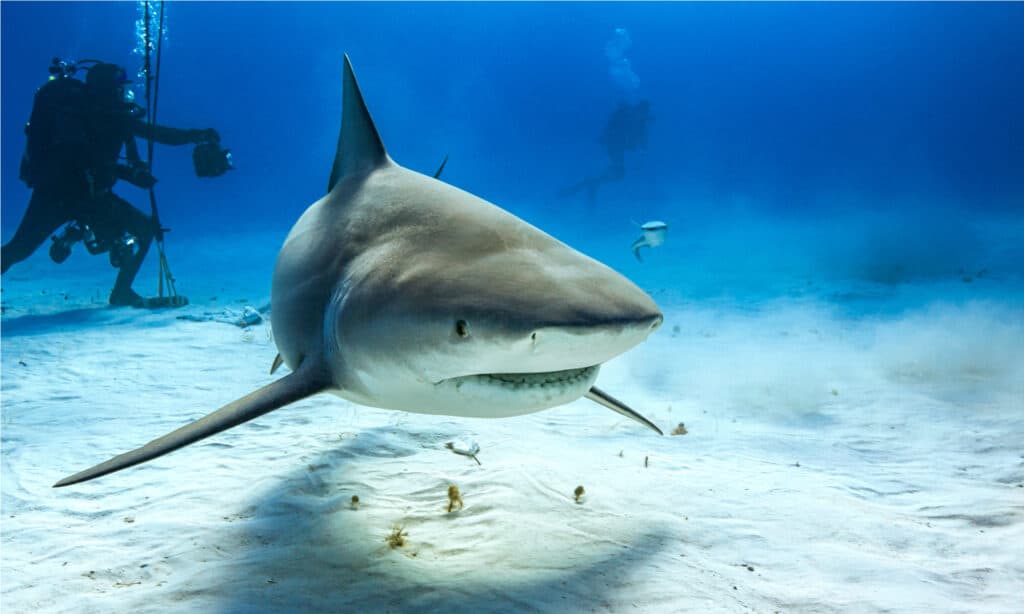
Sharks are attracted to bright, contrasting colors, shiny jewelry, splashing, schools of fish, and bait fish used by fishermen.
©Carlos Grillo/Shutterstock.com
Yes, there are sharks in the water, but that doesn’t mean you need to stay away from beaches. Your chances of being attacked by a shark in Georgia are exceedingly low, but you can reduce them even further with a few simple steps.
- Always swim with a buddy.
- Don’t wear jewelry in the water.
- Avoid swimming at dawn and dusk.
- Avoid swimming near fishermen or schools of fish.
- Don’t splash excessively.
Are Sharks Endangered?
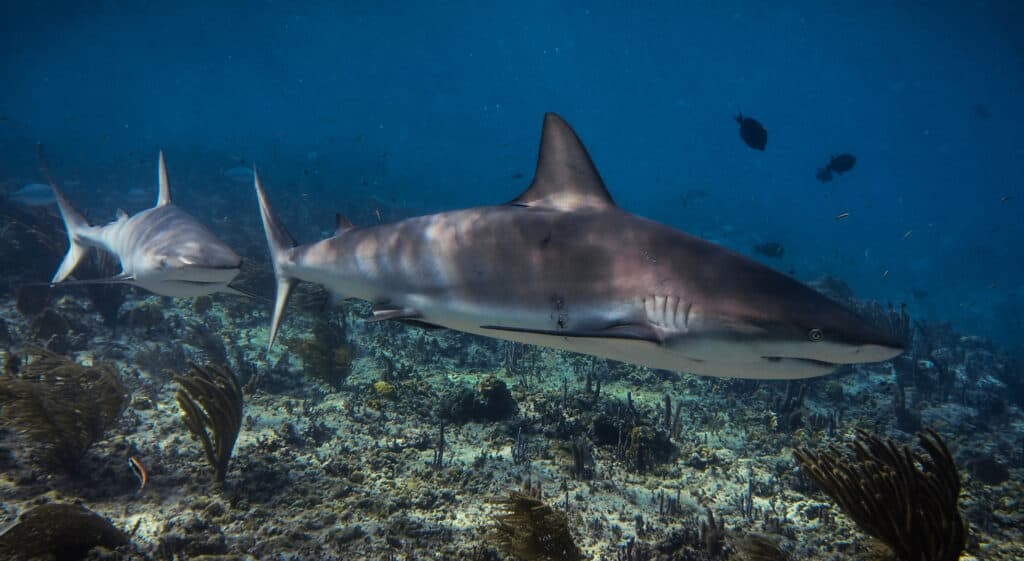
Sharks everywhere are threatened by overfishing, pollution, and culling for shark fin soup.
©iStock.com/ Ryan Cake
Sharks around the world, including Georgia sharks, are at risk of becoming endangered and in many cases, extinct. They’re slow to reproduce (unlike rabbits, mice, and other fast reproducing animals) and are extremely vulnerable to things like overfishing, ocean acidification, and pollution. One of the biggest threats to sharks today is the practice of finning. That is, catching a shark, cutting off its fins, and throwing it back in the ocean. This is done on a global scale to feed the demand for shark fin soup, and if it doesn’t slow down soon, many of our sharks will disappear altogether.
Why are Sharks Important?
Sharks are what are known as keystone species. This means that their presence is vital to the ecological balance of the marine ecosystem. And, since sharks inhabit all the world’s oceans, they’re essential for global oceanic health. Georgia sharks keep the local ecosystem in balance; they affect every single level of the food chain. So, though they might be scary at first, sharks actually have a lot more to fear from us than we do from them.
What You Can do to Help Sharks
Shark conservation is one of the most important aspects of protecting our oceans. And, you don’t have to be an expert to do your part. Start by educating yourself on sharks, why they’re important, and what their biggest threats are. Work to use fewer single-use plastics, and always pick up trash, especially if you find it on the beach. When it comes to eating seafood, try to pick sustainable options that don’t contribute to overfishing.
Finally, when it comes to Georgia sharks, remember the key steps to reducing your risk of a shark attack. Your chances of being attacked by a shark off Georgia’s beaches are incredibly small, so stay smart, and enjoy the water!
The photo featured at the top of this post is © iStock.com/cbpix
Thank you for reading! Have some feedback for us? Contact the AZ Animals editorial team.




